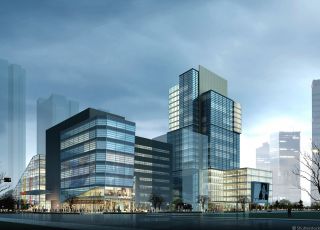An unprecedented crisis that is changing travel patterns
Since the beginning of the health crisis and in order to avoid the spread of the virus, European companies have called for social interactions and travel time to be kept to a minimum. This trend is continuing, despite the gradual return to the office. In the face of the health crisis, organisations around the world are making the changes necessary for collective reorganisation. Remote working, hybrid forms of work and home-office, collaborative workspaces - the solutions being implemented are working, are appealing to many and are laying the foundations for tomorrow's world. Guillaume Saint, Global Head of Automotive and Mobility at Kantar, stated in an article in Les Echos, Transport, logistics: the health crisis accelerates transitions, "the pandemic has been an eye-opener for all generations. It has shown that we can move differently.*
A better quality of life, more productivity and a considerable reduction in costs; the home office trend is on the rise, with no signs of slowing down, but can we assume that it will become the norm? In a study published by BNP Paribas Real Estate in May 2020, which focused on the way French employees feel about returning to the office, 38% said that they wanted to return to their place of work, albeit with certain concerns. The assimilation of corporate culture, for example, remained a point of concern, with 59% of respondents believing that remote working would not allow all employees to be adequately versed in the company's values.
Armed with the lessons accrued from the crisis, organisations are now reinventing and building tomorrow's real estate world. So how will we go to work in the future, how often, and by which mode of transport?
Stay at home! Does full-time remote working work?
Whilst remote working was certainly not invented by the pandemic, it has caused a change in how it is applied, resulting in companies being forced to deploy the necessary tools for their employees. This has proven to be a success, even if it cannot be applied to all professions or sectors.
According to the white paper published by Arval and BNP Paribas Real Estate, only 25% of European employees experienced 100% remote working. In contrast, 10% of companies closed, 21% were classified as non-essential, 18% had their activity reduced, and 26% were classified as essential and remained fully active during the confinement.
These figures paint an unequivocal picture of the future of the office, which remains essential to all organisations, and suggests that the transport market itself is facing many changes.
Remote working, how has getting to work changed?
Car-sharing, bike-sharing or renting, public transport subscriptions, 71% of companies had already set up mobility solutions for employees on their premises before the crisis** . Each of them is based on different models, designed in accordance with the needs of users. Depending on whether a company's employees travel from point A to point B on a daily basis or whether they are on the move during their working day, companies now tend to offer tailor-made solutions.
The report by Arval and BNP Paribas Real Estate explores several consequences for car fleets, mobility and corporate real estate through four scenarios:
- The deployment of employees in several satellite offices or co-working spaces while maintaining a smaller head office.
- The development of remote working for all, or at least the vast majority of staff, with the effect of reducing property costs and environmental impact. Those who drive receive a mobility package including a company car.
- A hybrid approach that promotes a more flexible way of working and allows for the development of soft mobility solutions and car-sharing.
- A quick return to the office and to pre-Pandemic Covid-19 working practices. No impact on the management of the company's car fleet. Some employees will be happy to return to the office, but it may not be a unanimous decision among all employees.
* Les Echos: Transport, logistics: the health crisis accelerates transitions _ https://leonard.group.echonet/Document/Open?pDocId=2337248&origin=Kiosk
** Arval BNP Paribas Real Estate white paper on the impact of teleworking on the mobility and corporate real estate markets _ White Paper Arval BNPP Real Estate Impact of Remote Working on Mobility.pdf

Creating value
BNP Paribas Real Estate Investment Management: creating value over the long term




